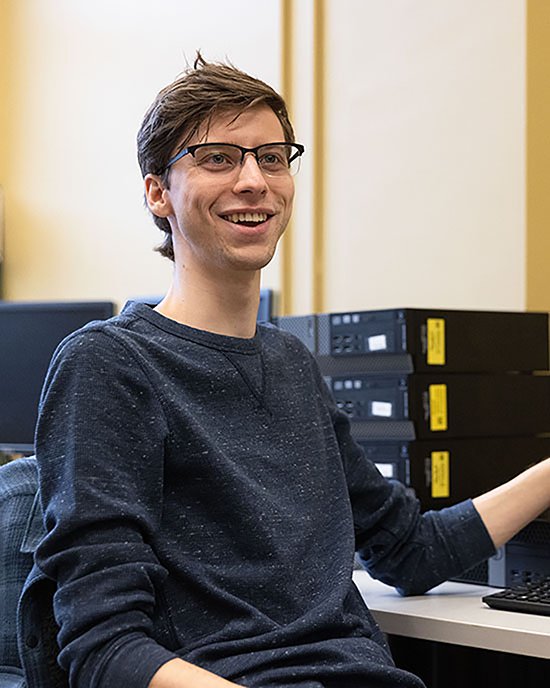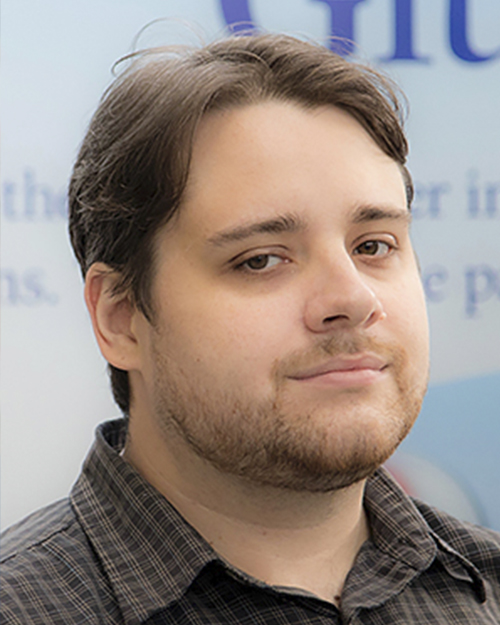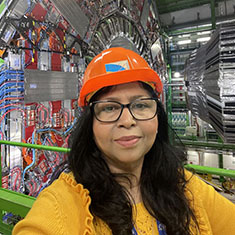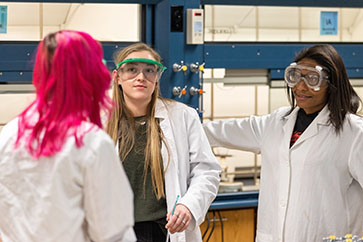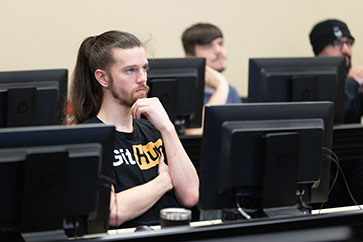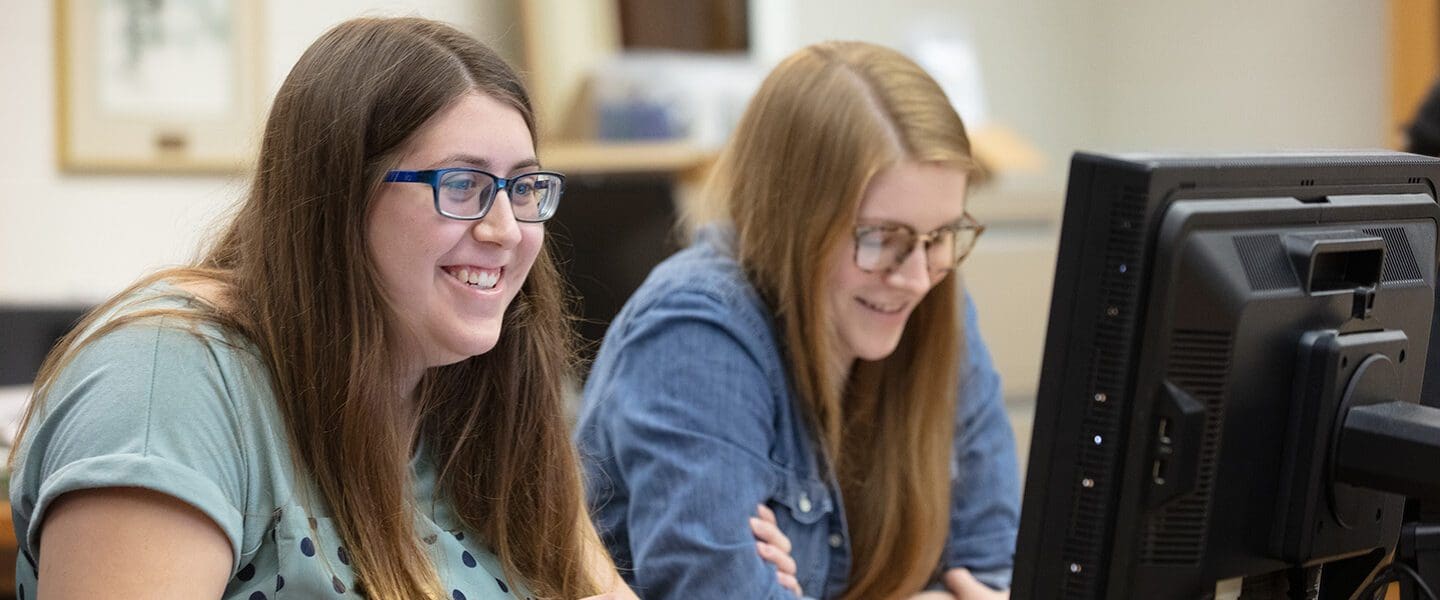
Bachelor's Degree in Physics
Bachelor of Science
Request Information
Physics Degree Program Overview
Purdue University Northwest’s physics major offers an engaging learning environment and a rigorous program of study, augmented by a diverse research agenda.
With this degree, you’re prepared for graduate studies in not only physics but astronomy, engineering, education, data science and medicine as well.
Department of Chemistry and Physics
As a discipline, physics explores some of the most fundamental questions in our world and about our universe. The fundamentals of physics have applications across many fields.
Studying physics develops robust quantitative and critical thinking skills that are highly desired by employers and offer tremendous career flexibility.
With a small student-to-faculty ratio, our physics program offers you support and mentoring that suits your specific talents and goals.
Physics Major Curriculum
In the physics degree program, you’ll take a balance of general education courses, College of Engineering Sciences core courses and courses in modern physics, intermediate mechanics and electromagnetism, statistical physics and quantum physics.
We offer a range of elective courses, such as nuclear and computational physics. You’ll also develop your experimental skills through several laboratory courses and a senior research project.
Build a foundation through introductory mechanics and freshman seminar, along with calculus, introductory chemistry and general education courses.
Sample Courses
- PHYS 15200 – Mechanics
- MA 16400 – Integrated Calculus Analysis Geometry II
Complete an introductory course in electromagnetism as well as classes in modern physics, advanced calculus and differential equations. You’ll also take general education and elective courses.
Sample Courses
- PHYS 25100 – Heat, Electricity And Optics
- PHYS 34300 – Modern Physics Laboratory
Begin a two-year rotation of upper-level physics core courses, plus linear algebra, programming and physics electives.
Sample Courses
- PHYS 31100 – Quantum Physics I
- CS 12400 – Programming II: C++
Finish your two-year rotation and conduct a year-long research project, which you’ll present in the spring.
Sample Courses
- PHYS 31000 – Intermediate Mechanics
- PHYS 38000 – Advanced Physics Laboratory
Physics Degree Program Highlights
Physics at PNW offers unique opportunities to participate in cutting-edge research alongside our faculty in particle physics, nuclear physics and astrophysics.
Our students have worked with their faculty mentors at the Large Hadron Collider and the Energy Center. They’ve also studied asteroids with the NIRO observatory and helped run supercomputer simulations of neutron star mergers.
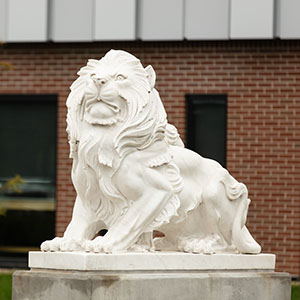
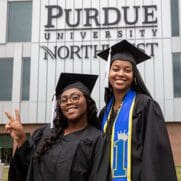
Physics Degree Program Outcomes
You’ll graduate with a strong understanding of physical principles and theories, experimental analysis techniques and theoretical/computational modeling skills.
This experience prepares you for graduate study in physics and affiliated fields (astrophysics, biophysics, etc.) or employment in fields ranging from data science to finance to engineering and beyond.
Physics Degree Program Employers
Recent graduates of our program are employed at:
- Old Dominion University
- Ball State University
- EXL
- Dwyer Instruments Inc.
- AM Stabilizers Corporation
Physics Degree Program Beyond the Classroom
The Chemistry and Physics Club is a student-led group engaged in community outreach and activities of interest to anyone interested in chemistry and physics.
Physics Degree Program Career Paths
Physics majors go on to careers in academia, finance, patent law, engineering, manufacturing, IT, health sciences and consulting, among others.
Meet the Faculty
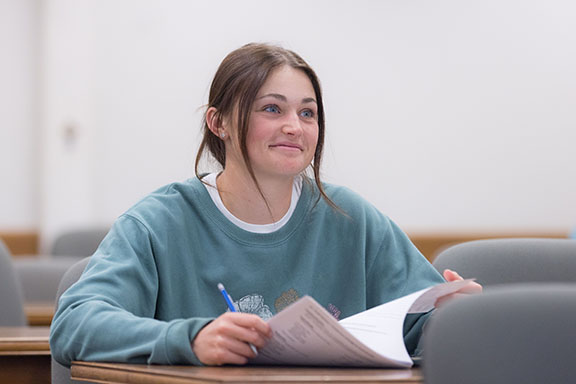
Earn a Bachelor's Degree in Physics at PNW
Purdue University Northwest’s physics degree program prepares you for a career in a variety of technical and computational fields or continued work toward an advanced degree.
To see how a Bachelor’s Degree in physics from PNW opens doors, from universities to corporations, take the next step today!

